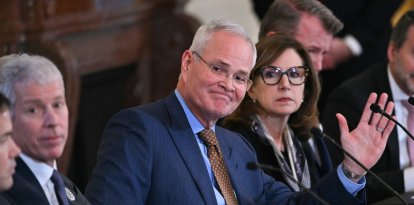Black Friday: retailers expect a sharp drop in sales
Macy's, Target, Kohl's, Gap and Nordstrom noted "a lull in sales in late October and early November" which caused them to cut their revenue outlook.

(Pexels)
Black Friday marks the start of the nation's shopping season and is considered "a key barometer of shoppers' willingness to spend" on their holiday gifts. However, runaway inflation continues to worry retailers who fear that people will spend less money than in previous years and be more selective with their purchases.
The National Retail Federation expects sales growth for this Black Friday to slow to a range of around 6% to 8%, down from a 13.5% increase a year ago. These figures - not adjusted for inflation - may forecast real spending to be even lower than in 2021.
Changing trends: slower sales
This year's shopping trends contrast with those of last year, when people shopped ahead of time for fear of not getting what they needed in time because of supply network blockages due to the covid-19 pandemic.
Macy's, Target, Kohl's, Gap and Nordstrom stores spoke of "a lull in sales in late October and early November." Target and Kohl's cut their revenue outlook for the holiday quarter, citing sluggish sales.
Macy's CEO Jeff Gennette said the influx of customers visiting its stores and website held up, but that many of those visits did not convert to purchases.
Best Buy CEO Corie Barry, said that the company's October sales were the slowest of the quarter compared to last year and that so far consumers have not rushed to buy: "This year there is not that impetus to buy. The average consumer knows that there is plenty of inventory and that they will get a competitive price."
Shoppers are also using more of their savings and turning to "buy now, pay later" services that allow them to pay for items in installments.























